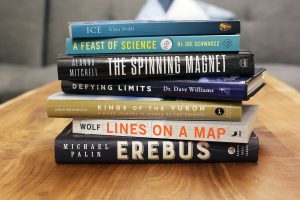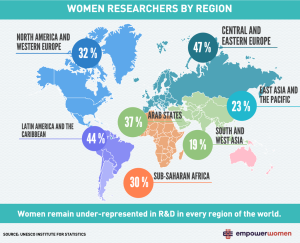The depths of human memory are hard to fathom, but Hilde Østby and Ylva Østby dive into the subject in their new book Adventures in Memory: The Science and Secrets of Remembering and Forgetting, published Oct. 9.
Marrying storytelling and psychology from their respective backgrounds as a writer-historian and a neuropsychologist, the Norwegian sisters weave a fascinating tale that touches on everything from the navigational prowess of London cabbies to people who can’t forget (and those who can’t remember). Here, the Østbys discuss the book, the importance of place to memory and what they find most fascinating about the subject. For a chance to win one of two copies of the book, be sure to like Canadian Geographic on Facebook.
On where the idea for the book came from and how they each approached the subject
Ylva Østby: I’m a neuropsychologist, so memory is my favourite subject matter. Hilde was pushing me to write a book about it, but I’d always said “No, that’s not going to happen!” But then we ended up writing a magazine piece about memory, and we realized it was actually really nice to join forces. What we wanted to do is show the world in a non-judgmental way how memory works. We didn’t want to tell people that they have to improve their memory or that it has to be better or that it has to be perfect; on the contrary, we want to show that memory is something not to take for granted.
I approached it from the science side, of course, and we both did the writing, but Hilde led the creative part and contributed historical perspectives that I didn’t know about. For instance, I never knew that alchemists considered memory to be one of the biggest treasures, seeking it as they would have sought gold. Also, she knew how to ask the kinds of questions that I, as a scientist who has been trained to focus on certain topics and questions, had forgotten how to ask.
Hilde Østby: When we were writing, I wasn’t into the details of the research but instead tried to take the perspective of the average reader — the person who probably doesn’t know about the science. I worked as a journalist for many years, so I’m not afraid to ask what might seem like simple or stupid questions. For example, why is a sense of place so important for memory? As a layperson, I find it frustrating when you get down to something at the neuron level because at that level, what are you really explaining about memory? You’re just saying that this signal goes from one neuron to the other or passing through other neurons, but have you really described what memory is? Is that a better explanation than a literary description of a memory? Like one that’s prompted by the scent of a cup of tea? Writers work just as much with the nature of memory as scientists because we work with stories and our memory is organised as stories — that’s how our brain works.
On the importance of place in memory
YØ: When we remember an episode, it’s almost always taking place somewhere. That’s how important places are to our memories. If you try to remember your first kiss, for instance, it rarely takes place in a vacuum in outer space or something. That probably has something to do with how important places are in the memory of other species as well. We don’t think that rats, for instance, have the episodic memory that we have — that they can actually go back in time mentally and re-experience things — but they do have this mental memory system for places. These are probably the precursors to the episodic memory that we have.
HØ: All memories are really deeply connected to place because without the place there is no memory. When we were working on the book, we tried to write about situations in very specific places so that the reader would be able to connect with what we wrote. Place is like a theatre for memory. If all memories are a re-staging of the play that has been your life, without the theatre — without those places — you don’t have the play.
On training your memory
YØ: Memory can be trained, and in some ways that can be advantageous. But I think that people shouldn’t feel like they must train their memory because even if they do, they can’t improve all their memory functions. The technique known as the method of loci, for instance, will not improve the way you remember your life; you will not be better at remembering where you’ve been and the holidays you’ve been on, and you probably will not be better at remembering birthdays and phone numbers of people you know — but you will be better at things such as remembering lists of facts or what you need when you go shopping. These kinds of challenges could be very good for your brain, of course, but I think we have to be careful about the great focus there is today on improving oneself and trying to become perfect.
I think the memories that really matter are the experiences that we have, whether these are formed while travelling or during everyday life. And there really is no way to train how we remember these experiences.
What we can do is train people to become more introspective about their memory and become more aware that they have this inner life that is their memories. I think this is very interesting, especially when it comes to treating conditions such as depression. Depressed people sometimes can’t seem to capture specific pleasant moments from their life, which can further feed the depression.
On the most fascinating parts of memory
YØ: I’ve been working with patients with memory problems for several years and studying how those problems play out in various neurological diseases, so it was fascinating for me to look at the other side of memory, at people who have super memories. It was astonishing to learn about them and how they’ve been overlooked in the scientific literature for so many years. More generally, what I find fascinating about memory is that it’s a constructive process. Our brain automatically reconstructs our episodic memories, and it does that in a creative kind of way that we don’t necessarily have control over. We don’t decide how our memories are going to play out when we bring them back — our mind just does it.
HØ: Human memory is fallible because it’s so creative, so full of associations, and you recreate memories all the time so that they’re a little bit wrong. But of course we’re not supposed to be remembering everything all the time. We’re supposed to be remembering things with each other; we’re supposed to tell each other stories and correct those memories with each other. I found that to be uplifting and it strengthened my view that we’re all collective beings and that our stories are something that we share.





